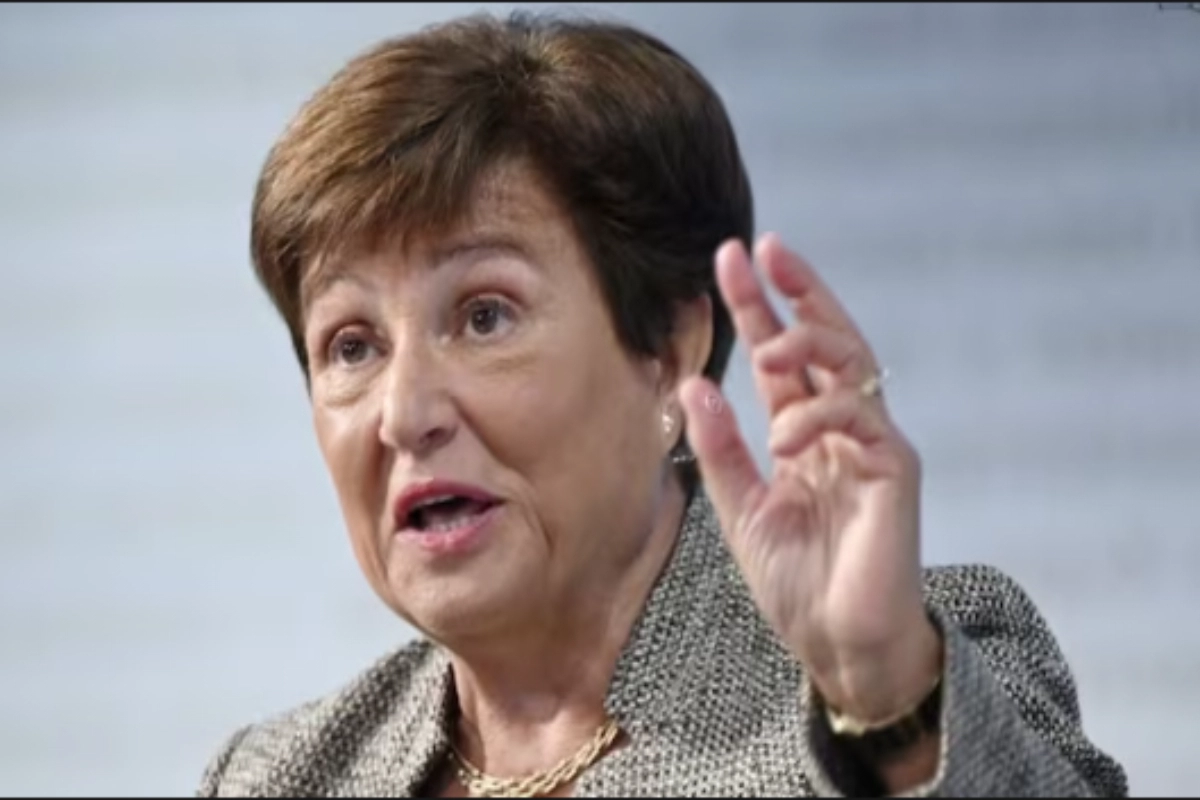Artificial Intelligence: Global job security is at risk from artificial intelligence, but there is also a “tremendous opportunity” to increase declining productivity levels and spur global growth, the head of the IMF told AFP. Kristalina Georgieva, the managing director of the International Monetary Fund, stated in a Washington interview just before she left for the annual World Economic Forum in Davos, Switzerland, that artificial intelligence would impact sixty percent of jobs in industrialised economies.
IMF Research Reveals 40% Impact from AI
She cited a new IMF research when she stated that “40 percent of jobs globally are likely to be impacted,” with AI projected to have less of an impact in developing nations. “And the more you have higher skilled jobs, the higher the impact,” she added. But according to an IMF analysis released on Sunday night, only half of the occupations that AI affects will suffer; the other half may even gain from increased productivity as a result of AI.
“Your job may disappear altogether not good or artificial intelligence may enhance your job, so you actually will be more productive and your income level may go up,” Georgieva said. According to the IMF analysis, labour markets in underdeveloped and emerging economies will be less affected by AI initially, but they will also be less likely to gain from the increased productivity that comes with integrating AI into the workplace.
A Call to Empower Low-Income Nations
“We must focus on helping low income countries in particular to move faster to be able to catch the opportunities that artificial intelligence will present,” Georgieva told AFP. “So artificial intelligence, yes, a little scary. But it is also a tremendous opportunity for everyone,” she said. Later this month, the IMF is expected to provide revised economic projections that will demonstrate that, overall, the world economy is on track to surpass its earlier projections, according to her.
The economy is “poised for a soft landing,” she stated, adding that “monetary policy is doing a good job, inflation is going down, but the job is not quite done.” “So we are in this trickiest place of not easing too fast or too slow,” she said. The IMF projects that, over the medium term, the global economy would continue to develop at historically subdued levels, meaning that it could use a productivity boost related to AI.
Georgieva’s Call to Unlock Global Potential
“God, how much we need it,” Georgieva said. “Unless we figure out a way to unlock productivity, we as the world are not for a great story.” According to Georgieva, 2024 will probably be “a very tough year” for fiscal policy globally as nations attempt to replenish their diminished buffers and deal with debt loads incurred during the Covid-19 pandemic.
This year, there will be billions of voters, which will increase pressure on governments to either reduce taxes or increase spending in order to gain support from the public. “About 80 countries are going to have elections, and we know what happens with pressure on spending during election cycles,” she added.
IMF Chief Georgieva Raises Concerns
According to Georgieva, the IMF is concerned that governments all over the world may overspend this year and jeopardise the hard-earned achievements they have gained in the battle against excessive inflation. “If monetary policy tightens and fiscal policy expands, going against the objective of bringing inflation down, we might be for a longer ride,” she added.
Georgieva’s Future at IMF
Georgieva declined to comment when asked if she planned to run for the position of head of the IMF again during her remaining five years in office this year. “I have a job to do right now and my concentration is on doing that job,” she said. “It has been a tremendous privilege to be the head of the IMF during a very turbulent time, and I can tell you I’m quite proud of how the institution coped,” she continued. “But let me do what is in front of me right now.”
Keep watching our YouTube Channel ‘DNP INDIA’. Also, please subscribe and follow us on FACEBOOK, INSTAGRAM, and TWITTER












